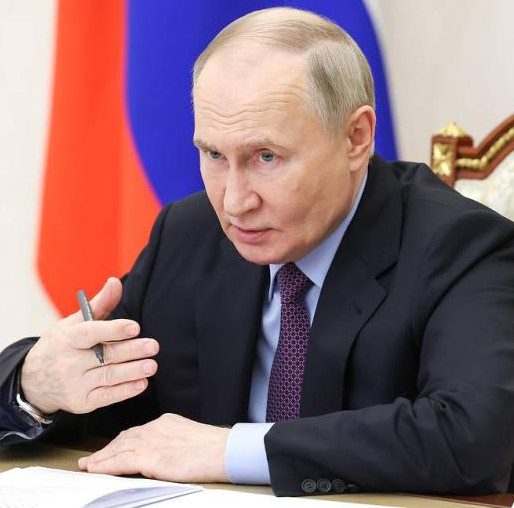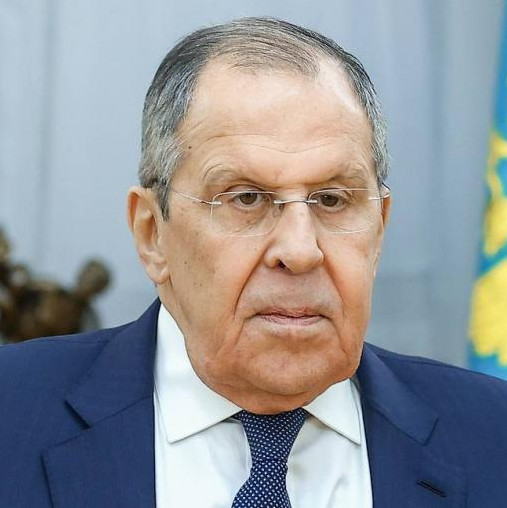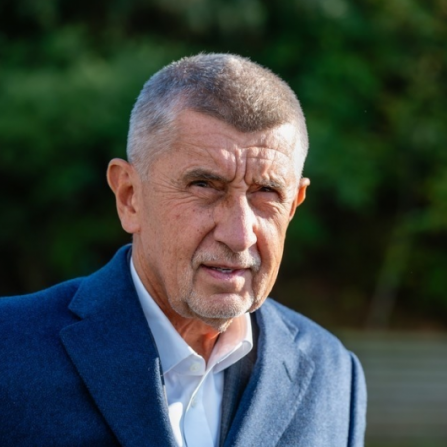The latest visit by President of the self-proclaimed Republic of Abkhazia, Sergei Bagapsh, to Moscow was not wanting in some sensational statements, and aroused a new wave of irritation and anger in Tbilisi.
According to Russian and Abkhazian media, in Moscow S. Bagapsh had meetings and talks with unnamed officials of the Russian government. Commenting on the goals of the visit, Abkhazian Foreign Minister Sergei Shamba said: "When our Georgian neighbors go to Washington, we go to Moscow. First, it is nearer, and second, we are united to Moscow by the long-standing economic relations, and we are doing our best not to disrupt them".
To all appearances, the results of the meetings in Moscow added to the optimism of the Abkhazian leaders. At a press conference S. Bagapsh, who only last year was considered nearly a pro-Georgian politician, said that "Abkhazia's drive towards an associated membership with Russia would continue", and appropriate consultations are underway. As the President said, at present Abkhazia is working on the synchronization of its legislation with that of Russia.
Thus Sergei Bagapsh once again demonstrated that in spite of the misgivings voiced by some people in Moscow and Sukhumi, he proved to be a politician quite loyal to Russia. During the first six months of his presidentship he visited Moscow even more frequently than his predecessor Vladislav Ardzinba during all the 11 years of his term of office.
Moreover, the current Abkhazian President stated that in one year's time all Abkhazia's population would get Russian citizenship. As of today, 84 percent of Abkhazians hold Russian passports, and up to 70 percent of Abkhazian pensioners are getting their pensions from Russia. As S. Bagapsh himself has said, "this process is going on, and in another six months or at most one year all Abkhazia's population would be Russian citizens".
The Abkhazian leader specially noted that Russia remains Abkhazia's principal trading partner and investor, and all projects that are being implemented in Abkhazia are mutually beneficial. According to him, Sukhumi has made Moscow paying propositions to build health facilities and industries in Pitsunda, while the Russian party is showing interest in significant investments in Abkhazia.
President Bagapsh also touched on the prospects of a peaceful dialog with Georgia, noting that Sukhumi and Tbilisi may in principle reach a consensus and sign a security agreement. As the President of the self-proclaimed Black Sea republic said, "as of today, the positions of the two parties remain promising, and a consensus may be reached in this aspect, that is, we might sign an agreement on security between Abkhazia and Georgia". He added: "We stand for logic in actions. We stand for the continuation of the peaceful dialog".
However, these statements are very unlikely to find a positive response in Tbilisi. As it is, S. Bagapsh's visit to Moscow was taking place against the background of yet another exchange of harsh words and recriminations between Georgia and Abkhazia. First, the Georgian leadership was irritated by the start of the military maneuvers in Abkhazia, unprecedented in scale for that republic, with the participation of up to 6 thousand servicemen of the regular army and the reserve.
The official Tbilisi was quick to term the maneuvers "inadmissible", while Georgian minister for the settlement of conflicts, Georgi Khaindrava, accused Russia of allegedly supplying arms to the self-proclaimed republic and setting up some military units on its territory. As for President Bagapsh, who is under Abkhazia's Constitution Commander-in-Chief of its armed forces, immediately after his return from Moscow he left for the site of the maneuvers to watch over their termination and to evaluate their results.
In Sukhumi, they make no secret of the maneuvers, though carried out on schedule, being also aimed to show Tbilisi Abkhazia's readiness to repeal any attempt to return the republic to Georgia's bosom by force. Besides, the maneuvers became a sort of a reply to the joint US-Georgian navy exercises highlighting the big landing dock-ship "Nashville" of the US Navy, held at the beginning of August in the area of Poti.
Another cause of the recrimination between Georgia and Abkhazia became the refusal of the Abkhazian authorities to include two Georgian experts in the inspection team supposed to review the state of the Abkhazian section of the Georgian railway. The Abkhazian Foreign Ministry bluntly declared those experts persona-non-grata in the republic. This caused a storm of indignation in Tbilisi, where such a decision was considered discriminatory. Georgian officials also hoped that Russia would use its influence in assuring the participation of the Georgian experts in the inspection of the railway.
On the whole, it may be stated that Abkhazia's wish to become still closer to Russia and even to become a part of it on the basis of associated membership has been markedly on the rise of late. It also has to be noted that this is largely due to policies of the present Georgian leadership who are incapable of offering Abkhazia any attractive alternative or constructive program, while continuing to rely mostly on threats, psychological pressure and provocation of tension.
According to Russian and Abkhazian media, in Moscow S. Bagapsh had meetings and talks with unnamed officials of the Russian government. Commenting on the goals of the visit, Abkhazian Foreign Minister Sergei Shamba said: "When our Georgian neighbors go to Washington, we go to Moscow. First, it is nearer, and second, we are united to Moscow by the long-standing economic relations, and we are doing our best not to disrupt them".
To all appearances, the results of the meetings in Moscow added to the optimism of the Abkhazian leaders. At a press conference S. Bagapsh, who only last year was considered nearly a pro-Georgian politician, said that "Abkhazia's drive towards an associated membership with Russia would continue", and appropriate consultations are underway. As the President said, at present Abkhazia is working on the synchronization of its legislation with that of Russia.
Thus Sergei Bagapsh once again demonstrated that in spite of the misgivings voiced by some people in Moscow and Sukhumi, he proved to be a politician quite loyal to Russia. During the first six months of his presidentship he visited Moscow even more frequently than his predecessor Vladislav Ardzinba during all the 11 years of his term of office.
Moreover, the current Abkhazian President stated that in one year's time all Abkhazia's population would get Russian citizenship. As of today, 84 percent of Abkhazians hold Russian passports, and up to 70 percent of Abkhazian pensioners are getting their pensions from Russia. As S. Bagapsh himself has said, "this process is going on, and in another six months or at most one year all Abkhazia's population would be Russian citizens".
The Abkhazian leader specially noted that Russia remains Abkhazia's principal trading partner and investor, and all projects that are being implemented in Abkhazia are mutually beneficial. According to him, Sukhumi has made Moscow paying propositions to build health facilities and industries in Pitsunda, while the Russian party is showing interest in significant investments in Abkhazia.
President Bagapsh also touched on the prospects of a peaceful dialog with Georgia, noting that Sukhumi and Tbilisi may in principle reach a consensus and sign a security agreement. As the President of the self-proclaimed Black Sea republic said, "as of today, the positions of the two parties remain promising, and a consensus may be reached in this aspect, that is, we might sign an agreement on security between Abkhazia and Georgia". He added: "We stand for logic in actions. We stand for the continuation of the peaceful dialog".
However, these statements are very unlikely to find a positive response in Tbilisi. As it is, S. Bagapsh's visit to Moscow was taking place against the background of yet another exchange of harsh words and recriminations between Georgia and Abkhazia. First, the Georgian leadership was irritated by the start of the military maneuvers in Abkhazia, unprecedented in scale for that republic, with the participation of up to 6 thousand servicemen of the regular army and the reserve.
The official Tbilisi was quick to term the maneuvers "inadmissible", while Georgian minister for the settlement of conflicts, Georgi Khaindrava, accused Russia of allegedly supplying arms to the self-proclaimed republic and setting up some military units on its territory. As for President Bagapsh, who is under Abkhazia's Constitution Commander-in-Chief of its armed forces, immediately after his return from Moscow he left for the site of the maneuvers to watch over their termination and to evaluate their results.
In Sukhumi, they make no secret of the maneuvers, though carried out on schedule, being also aimed to show Tbilisi Abkhazia's readiness to repeal any attempt to return the republic to Georgia's bosom by force. Besides, the maneuvers became a sort of a reply to the joint US-Georgian navy exercises highlighting the big landing dock-ship "Nashville" of the US Navy, held at the beginning of August in the area of Poti.
Another cause of the recrimination between Georgia and Abkhazia became the refusal of the Abkhazian authorities to include two Georgian experts in the inspection team supposed to review the state of the Abkhazian section of the Georgian railway. The Abkhazian Foreign Ministry bluntly declared those experts persona-non-grata in the republic. This caused a storm of indignation in Tbilisi, where such a decision was considered discriminatory. Georgian officials also hoped that Russia would use its influence in assuring the participation of the Georgian experts in the inspection of the railway.
On the whole, it may be stated that Abkhazia's wish to become still closer to Russia and even to become a part of it on the basis of associated membership has been markedly on the rise of late. It also has to be noted that this is largely due to policies of the present Georgian leadership who are incapable of offering Abkhazia any attractive alternative or constructive program, while continuing to rely mostly on threats, psychological pressure and provocation of tension.


